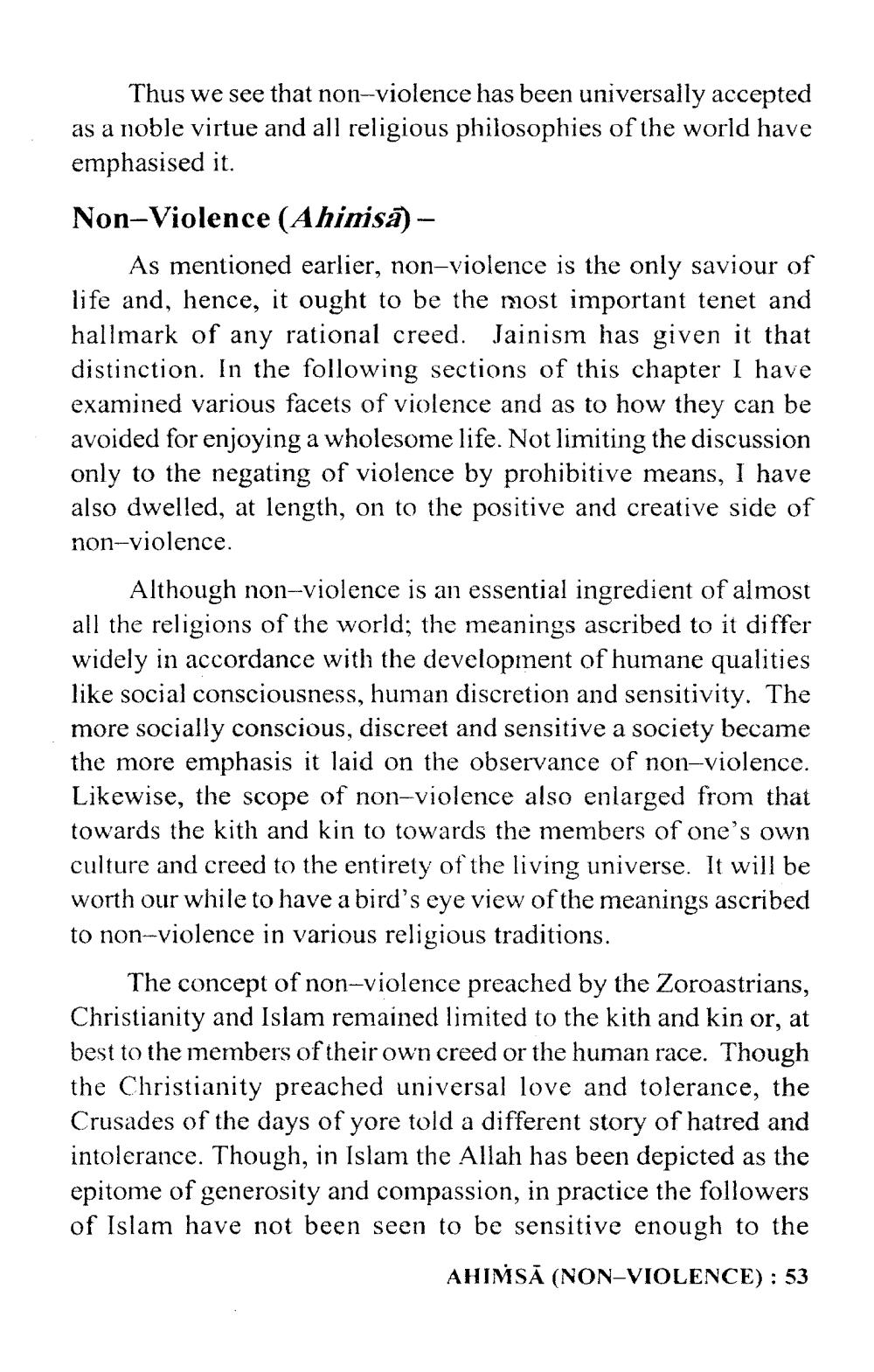________________
Thus we see that non--violence has been universally accepted as a noble virtue and all religious philosophies of the world have emphasised it.
Non-Violence (Ahimisa) -
As mentioned earlier, non-violence is the only saviour of life and, hence, it ought to be the most important tenet and hallmark of any rational creed. Jainism has given it that distinction. In the following sections of this chapter I have examined various facets of violence and as to how they can be avoided for enjoying a wholesome life. Not limiting the discussion only to the negating of violence by prohibitive means, I have also dwelled, at length, on to the positive and creative side of non-violence.
Although non-violence is an essential ingredient of almost all the religions of the world; the meanings ascribed to it differ widely in accordance with the development of humane qualities like social consciousness, human discretion and sensitivity. The more socially conscious, discreet and sensitive a society became the more emphasis it laid on the observance of non-violence. Likewise, the scope of non-violence also enlarged from that towards the kith and kin to towards the members of one's own culture and creed to the entirety of the living universe. It will be worth our while to have a bird's eye view of the meanings ascribed to non-violence in various religious traditions.
The concept of non-violence preached by the Zoroastrians, Christianity and Islam remained limited to the kith and kin or, at best to the members of their own creed or the human race. Though the Christianity preached universal love and tolerance, the Crusades of the days of yore told a different story of hatred and intolerance. Though, in Islam the Allah has been depicted as the epitome of generosity and compassion, in practice the followers of Islam have not been seen to be sensitive enough to the
AHIMSĀ (NON-VIOLENCE) : 53




